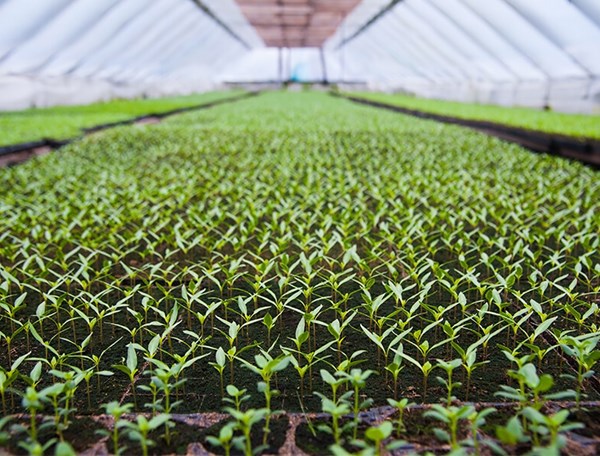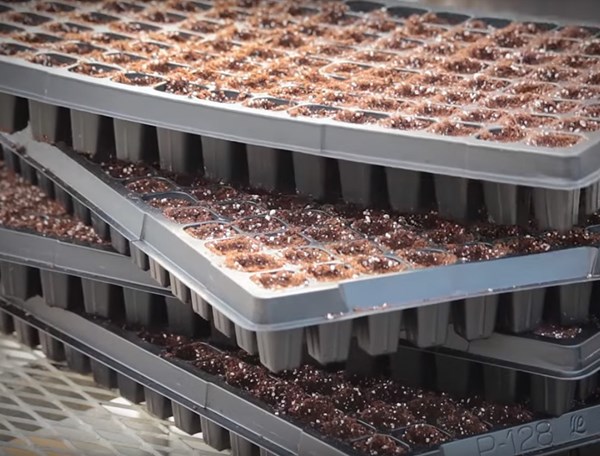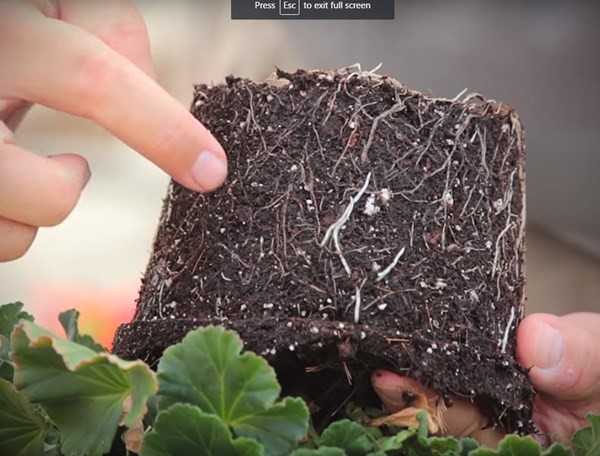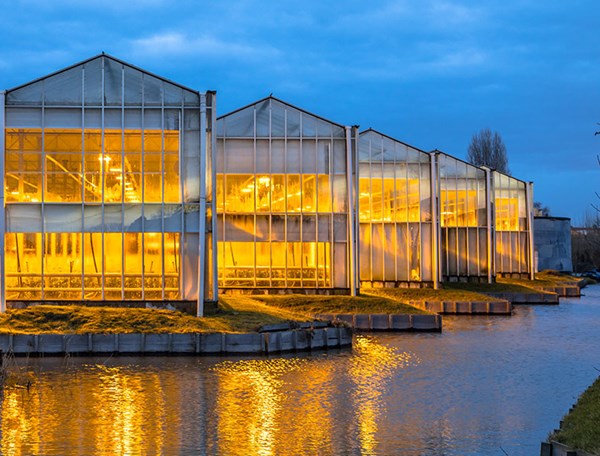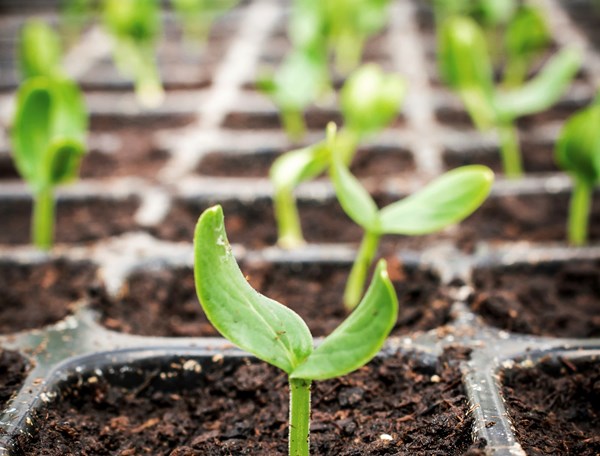Training Center
How Substrate Structure Influences Air Porosity
Thursday, September 7, 2023 | Jose Chen Lopez
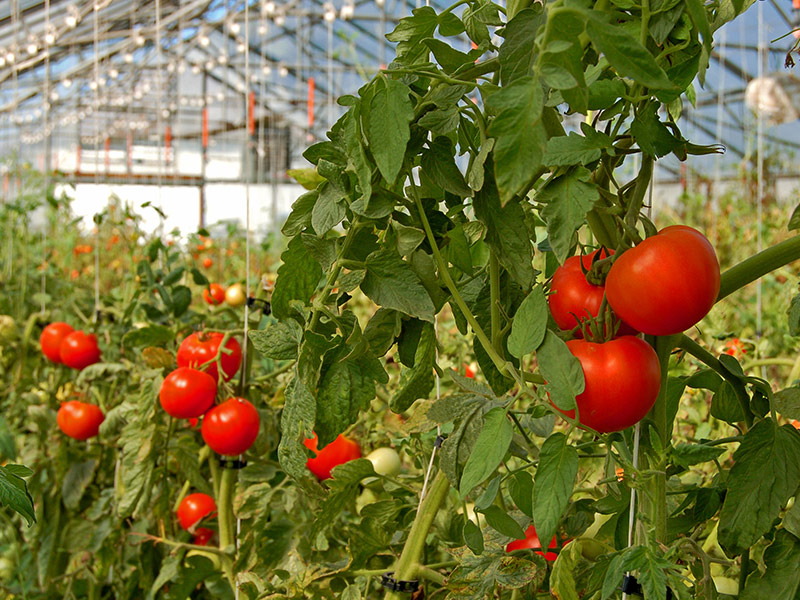
In this article, we are going to discuss how the substrate structure and particle sizes affect the air porosity in the substrate.
A substrate has 4 functions:
- It provides support for roots;
- It serves as a water reservoir;
- It serves as an exchange site for nutrients;
- It promotes the gaseous exchange between the rhizosphere around the roots and the atmosphere.
What Is Air Porosity?
Roots need oxygen for respiration. The amount of air required in the substrate is going to depend mostly on its total porosity. Total porosity is the percentage of the total volume of substrate that it is not occupied by solids and is composed of both air and water.
Air porosity is the percentage of air contained in a fixed volume of substrate after the substrate is saturated with water and the free water has drained. The higher the air porosity, the more oxygen the roots can acquire.
It is important to mention that some substrate components, like perlite, have closed pores. Therefore, even when the substrate is completely saturated, there are trapped air pockets within the component that cannot be used by the roots.
Physical Structure of Components
A good substrate must have a proper proportion of coarse and fine particles. Coarse substrate particles, such as coarse perlite, bark, fibrous peat, chunk coir, etc., create macropores; these types of pores release water rapidly, decrease water holding capacity and increase air porosity.
Micropores, which are created by fine substrate particles, such as fine peat, compost, coir dust, etc., retain water, increase water holding capacity and decrease air porosity.
A substrate with only coarse components has many macropores, so the air porosity is high and the water holding capacity is low. On the other hand, a substrate with only fine components has many micropores, so the substrate has low air porosity and the water holding capacity is high (Figure 1).
Therefore, a substrate with a good proportion of coarse and fine substrate particles can have a high water holding capacity, but it can be released smoothly as root suction increases, creating adequate air porosity as the substrate dries out between watering events.
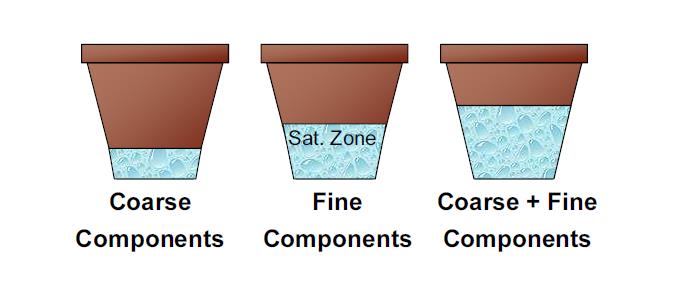
Figure 1. Influence of particle size in the same container. Source: Premier Tech
Some growers think that by adding fine substrate particles to a coarse substrate, the final mix is going to have high water holding capacity. In fact, the water holding capacity is going to increase but most of the water in the substrate is going to be tightly held by the small substrate particles, the roots are going to use more energy to obtain that water or it is going to be impossible to absorb. In addition, the drainage rate and air porosity will decrease and the dry-out time will increase.
Different Substrates, Different Air Porosities
A coarse substrate is used for container production while a fine substrate is used for seed germination. The particle size influences the capillarity of the substrate, which represents the distance water can be wicked by a substrate.
The length of the capillaries in a coarse substrate is going to be short with less ability to wick water, while the capillaries created by small particles are going to be long and can easily wick water a longer distance within the substrate.
Container Production
Therefore, for container production, a coarse mix is going to give a good proportion of air, water and solids because after saturation, most of the water is going to drain from its numerous macropores and some water is going to be held by the micropores.
Germination Substrates
For germination substrates, the cells of a tray are small; therefore, finer substrate components must be used, creating numerous micropores and limited air porosity. However, as roots absorb the small water reserve inside the cell, it is replaced by air, thus providing the needed air porosity.
The size of the cell tray required to germinate seeds of various plants will depend on the mature size of the plant.
Tomatoes and Large Plant Productions
Large plants, such as tomatoes, should be germinated in trays with larger cell sizes since their seedlings grow rapidly. If the cell size within a tray is too small, it is difficult to keep up with watering; the irrigation management must be precise to add enough water to the seedlings between watering events.
Therefore, for tomato seedlings, it is suggested to use a cell tray with cells that are at least ¾ to 1 in. (2-2.5 cm) across.
In conclusion, the air porosity of a substrate will depend on the capillarity, which is related to the sizes of the substrate particles. Air porosity will increase by adding coarse particles to a substrate.
Air porosity will decrease when fine particles fill up the macropores created by the coarse particles. Selecting the proper substrate and substrate components are key when it comes to providing the best air porosity for your crops.
For more information, contact your Premier Tech Grower Services Representative:
 |
 |
 |
 |
|---|---|---|---|
|
Ed Bloodnick |
Nathan Wallace-Springer |
Lance Lawson |
Victor Brantly |
 |
 |
 |
|
|
Troy Buechel |
Susan Parent |
Jose Chen Lopez |
PRO-MIX® is a registered trademark of PREMIER HORTICULTURE Ltd.
Related Articles
-
Growing media are one of the most widely used materials for growing greenhouse crops.
-
How to avoid growing media compaction
Premier Tech Horticulture Specialist Troy Buechel talks about solutions to avoid compaction in your growing media.
-
How watering influences root disease in your crops
Premier Tech Horticulture Specialist Troy Buechel gives some advices about the relationship between watering and root disease.
-
Influence of Light on Crop Growth
Plants require light for optimum growth and development, but the three different aspects of light, quantity, quality and duration, also have a significant influence on growth.
-
Stabilize a Growing Medium's pH with Water and Fertilizer
For growers, it is important to closely monitor pH to avoid swings in a growing medium's pH, which can lead to potential nutrient deficiencies or toxicities. Discover how you can stabilize a growing medium's pH with water and fertilizer.

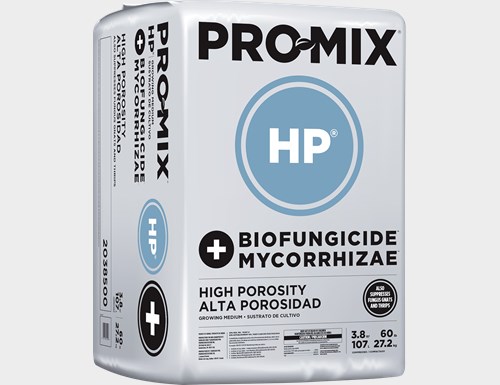
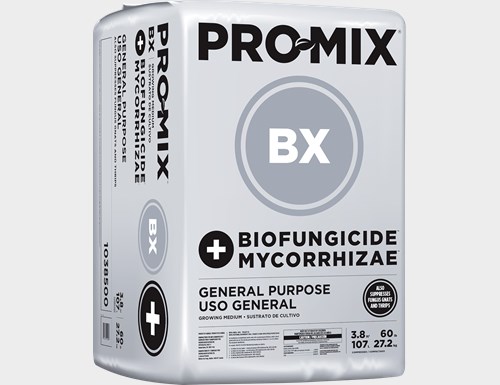
 Where to find our products
Where to find our products
